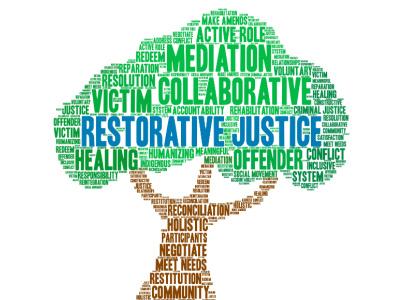Recent Blog Posts
Connecticut’s Clean Slate Law Will Go Into Effect in January 2024
 People who are convicted of criminal offenses often face difficulties in their lives, even years after completing their sentences. The collateral consequences of a criminal conviction can include problems finding employment, pursuing educational opportunities, and obtaining housing. To address this issue, the state of Connecticut has passed a "clean slate" law that is meant to help people move forward from the mistakes of the past by clearing their criminal records. While there have been issues that have prevented this law from going into effect, Governor Ned Lamont recently announced that the people will be able to benefit from its provisions starting in January of 2024.
People who are convicted of criminal offenses often face difficulties in their lives, even years after completing their sentences. The collateral consequences of a criminal conviction can include problems finding employment, pursuing educational opportunities, and obtaining housing. To address this issue, the state of Connecticut has passed a "clean slate" law that is meant to help people move forward from the mistakes of the past by clearing their criminal records. While there have been issues that have prevented this law from going into effect, Governor Ned Lamont recently announced that the people will be able to benefit from its provisions starting in January of 2024.
If you are concerned about how you may be affected by a criminal record, or if you need to make sure you will be able to benefit from Connecticut’s clean slate law, an experienced attorney can help you address these issues. At Woolf & Ross Law Firm, LLC, we can work with you to ensure that you receive the fresh start you deserve.
Have Body Cameras Reduced Police Misconduct?
 Excessive force, discrimination, and other forms of misconduct by police officers are growing concerns in the United States. Many police departments have little oversight, and even in situations where officers kill civilians without justification, they rarely face discipline. Over the past decade, concerns about police violence have led to calls for more oversight, and laws have been passed that have required police officers to wear body cameras
Excessive force, discrimination, and other forms of misconduct by police officers are growing concerns in the United States. Many police departments have little oversight, and even in situations where officers kill civilians without justification, they rarely face discipline. Over the past decade, concerns about police violence have led to calls for more oversight, and laws have been passed that have required police officers to wear body cameras
The use of these cameras is meant to ensure that instances of misconduct can be identified and that the appropriate actions can be taken in response. However, the ways in which body camera programs have been implemented have often failed to address concerns about misconduct. Because the actions of police officers can affect criminal cases, and excessive force by officers can lead to people being seriously injured or wrongfully killed, ongoing reform is needed. An experienced attorney can help people who have been affected by police violence during arrests understand their options for defending against criminal charges, including obtaining body camera footage and other evidence.
Congress May Attempt to Reincarcerate Prisoners Released on Home Confinement During COVID-19
 During the COVID-19 pandemic, the prison system in the United States faced a crisis. Many prisoners were placed at risk due to crowded conditions and a lack of proper medical care. To address this issue, the Coronavirus Aid, Relief, and Economic Security (CARES) Act passed by Congress allowed the federal Bureau of Prisons (BOP) to release low-risk prisoners on home confinement. A large number of prisoners were able to take advantage of this program. However, a new resolution has been proposed in Congress that would end the program and potentially even reincarcerate prisoners who have been able to achieve success during periods of home confinement
During the COVID-19 pandemic, the prison system in the United States faced a crisis. Many prisoners were placed at risk due to crowded conditions and a lack of proper medical care. To address this issue, the Coronavirus Aid, Relief, and Economic Security (CARES) Act passed by Congress allowed the federal Bureau of Prisons (BOP) to release low-risk prisoners on home confinement. A large number of prisoners were able to take advantage of this program. However, a new resolution has been proposed in Congress that would end the program and potentially even reincarcerate prisoners who have been able to achieve success during periods of home confinement
People who are involved in the criminal justice system often face a number of obstacles, and they may be wrongfully convicted or receive excessive sentences. An attorney who has experience in criminal defense cases at the state and federal level can help defend against convictions. They can also provide guidance on the relief programs that may be available, such as home confinement, while also taking steps to protect the rights of prisoners and help them avoid reincarceration.
Is Restorative Justice an Option for People Convicted of Crimes?
 In recent years, there has been a growing interest in alternative approaches to criminal justice. One such approach is restorative justice, which focuses on repairing the harm caused by crimes through dialogue, negotiation, and reconciliation between victims, offenders, and the community. While traditional punitive measures aim to punish offenders and deter future crimes, restorative justice seeks to address the underlying issues that lead people to commit criminal offenses.
In recent years, there has been a growing interest in alternative approaches to criminal justice. One such approach is restorative justice, which focuses on repairing the harm caused by crimes through dialogue, negotiation, and reconciliation between victims, offenders, and the community. While traditional punitive measures aim to punish offenders and deter future crimes, restorative justice seeks to address the underlying issues that lead people to commit criminal offenses.
Restorative justice may help address the ongoing crisis of mass incarceration in the United States. While many criminal cases focus on punishing alleged offenders, this has resulted in lengthy prison sentences for many people, as well as difficulties for inmates who struggle to reintegrate into their communities after serving their sentences and being released from prison. An attorney who provides representation for criminal defendants and convicts can provide guidance on the options for restorative justice and the steps that can be taken to ensure that prisoners’ rights are protected.
Retroactive Sex Offender Registration Affects Connecticut Convicts
 While all criminal charges are serious, there are some offenses that are prosecuted harshly, and they can result in consequences that will affect a person for the rest of their life. Sex crimes are taken especially seriously by the criminal justice system. A conviction for sexual assault or other related crimes in Connecticut will typically require a person to register as a sex offender for either 10 years or life. People who are accused of sex crimes can work with an attorney to determine their options for defending against a conviction and avoiding the stigma of being a registered sex offender.
While all criminal charges are serious, there are some offenses that are prosecuted harshly, and they can result in consequences that will affect a person for the rest of their life. Sex crimes are taken especially seriously by the criminal justice system. A conviction for sexual assault or other related crimes in Connecticut will typically require a person to register as a sex offender for either 10 years or life. People who are accused of sex crimes can work with an attorney to determine their options for defending against a conviction and avoiding the stigma of being a registered sex offender.
Sex offender registration can limit the opportunities available to a person, including the types of jobs they may be able to secure and the places where they can live. Their name, picture, and identifying information will be publicly available, affecting their reputation in the community and their relationships with friends and family. This can cause a great deal of difficulty for a person. Unfortunately, some people who had been convicted of sex offenses before the registry was put in place were retroactively added to the registry, and they are continuing to struggle with the effects of sex offender registration.
Changes to Sentencing Guidelines May Allow for Sentence Reductions

The United States has a problem with mass incarceration. Defendants who are charged with crimes will often face lengthy prison sentences, even for low-level, non-violent offenses. In many cases, these sentences do not have the desired effect of rehabilitating prisoners and ensuring that they will be able to successfully re-enter society after serving time in prison. Families will often struggle due to the loss of financial support from a person who is incarcerated. After being released, the collateral consequences of a criminal conviction may limit a person’s opportunities, leading them to engage in illegal activities that could result in additional criminal charges and longer periods of incarceration following a subsequent conviction.
Because of these concerns, government officials are looking to implement new policies that are meant to reduce sentences for some prisoners and ensure that they can be rehabilitated and reintegrate into society after being released. Recently, some changes have been made to the guidelines for sentencing in federal criminal cases, and some prisoners may be able to have their sentences reduced. To understand how these guidelines may apply for people who have been convicted of different types of crimes, prisoners can work with an experienced attorney who can help them take the proper steps to reduce their sentences.
How Social Media Use Can Lead to Violence and Criminal Charges

Social media has provided people with many benefits, including the ability to connect with others who have similar interests and share information about their lives with their friends and family members. However, the increased use of social media has also raised many concerns about issues ranging from privacy to addiction and other unhealthy behaviors. One increasingly prevalent issue for young people who use social media involves the risks of violence, which may occur when fights, bullying, and other related issues are amplified after being shared online.
Advocates for public safety and people who work with teens and others to prevent violence have raised concerns about the use of social media. Teens who commit acts of violence after being involved in online arguments or gang-related activity may face criminal charges that could affect them for the rest of their lives. In these situations, it is important to work with an attorney who can provide legal representation in criminal cases while also helping juvenile offenders participate in diversion programs that will help them avoid illegal activities while protecting their futures.
How Has the First Step Act Helped Reduce Mass Incarceration?
 The First Step Act, which was passed by Congress and signed by President Donald Trump in 2018, has been a significant step towards reducing mass incarceration in the United States. This criminal justice reform law aims to address issues such as sentencing disparities and recidivism rates. By implementing various reforms and providing prisoners with opportunities for rehabilitation, the First Step Act has had a positive impact on reducing mass incarceration across the country. However, many people who face criminal charges will still face an uphill battle as they defend against convictions or unfair and excessive sentences. To ensure that their rights will be protected, criminal defendants can work with an experienced attorney to address the charges they are facing.
The First Step Act, which was passed by Congress and signed by President Donald Trump in 2018, has been a significant step towards reducing mass incarceration in the United States. This criminal justice reform law aims to address issues such as sentencing disparities and recidivism rates. By implementing various reforms and providing prisoners with opportunities for rehabilitation, the First Step Act has had a positive impact on reducing mass incarceration across the country. However, many people who face criminal charges will still face an uphill battle as they defend against convictions or unfair and excessive sentences. To ensure that their rights will be protected, criminal defendants can work with an experienced attorney to address the charges they are facing.
What Is the First Step Act?
The First Step Act is a federal law that focuses on promoting prisoner rehabilitation, reducing recidivism rates, and limiting excessive sentences for people who are convicted of federal crimes. It was designed to address some of the flaws within the criminal justice system by implementing evidence-based programs and policies.
What Resources Are Available to Prisoners With Opioid Addictions?
 In recent years, the opioid epidemic has become a major issue that affects millions of people throughout the United States. The availability of prescription drugs that are used to treat pain has led to high levels of addiction, and some people have turned to illegal sources of drugs. This problem has been compounded by the increased use of fentanyl, a synthetic opioid that can be very potent and dangerous.
In recent years, the opioid epidemic has become a major issue that affects millions of people throughout the United States. The availability of prescription drugs that are used to treat pain has led to high levels of addiction, and some people have turned to illegal sources of drugs. This problem has been compounded by the increased use of fentanyl, a synthetic opioid that can be very potent and dangerous.
While people from all walks of life have been affected by the opioid crisis, inmates in prison are especially likely to suffer overdoses or other harmful issues, and they will often struggle to receive the treatment needed to address addictions. As prisoners work to ensure that they can combat addictions and maintain their health and well-being both during their incarceration and after their release, they can work with an attorney who has experience in criminal defense to make sure their rights will be protected.
How Pretextual Traffic Stops Can Lead to Criminal Charges
 Being pulled over by a police officer is never a pleasant experience, but while these situations can be a fairly minor inconvenience for some people, they can be very dangerous for others. While traffic stops are usually meant to address traffic violations such as speeding, they may be used by police officers as a method to investigate someone they believe is suspicious and uncover evidence that could be used to perform an arrest and pursue more serious criminal charges. Due to racial profiling and the history of unfair treatment of minorities by law enforcement in the United States, these pretextual traffic stops can put some people at risk of being harmed or killed by police officers.
Being pulled over by a police officer is never a pleasant experience, but while these situations can be a fairly minor inconvenience for some people, they can be very dangerous for others. While traffic stops are usually meant to address traffic violations such as speeding, they may be used by police officers as a method to investigate someone they believe is suspicious and uncover evidence that could be used to perform an arrest and pursue more serious criminal charges. Due to racial profiling and the history of unfair treatment of minorities by law enforcement in the United States, these pretextual traffic stops can put some people at risk of being harmed or killed by police officers.
Defending against criminal charges resulting from pretextual traffic stops is not always easy. However, with the help of an attorney, defendants can address violations of their rights, illegal searches of their vehicles, or other forms of police misconduct.






